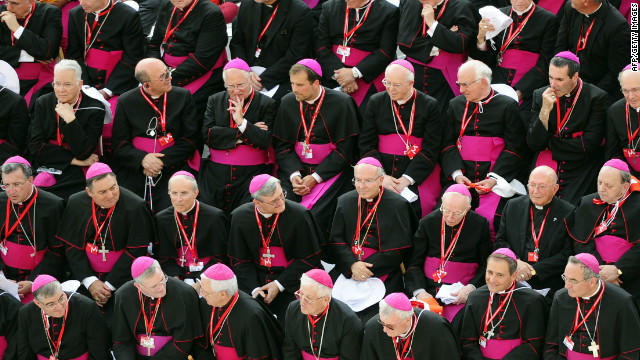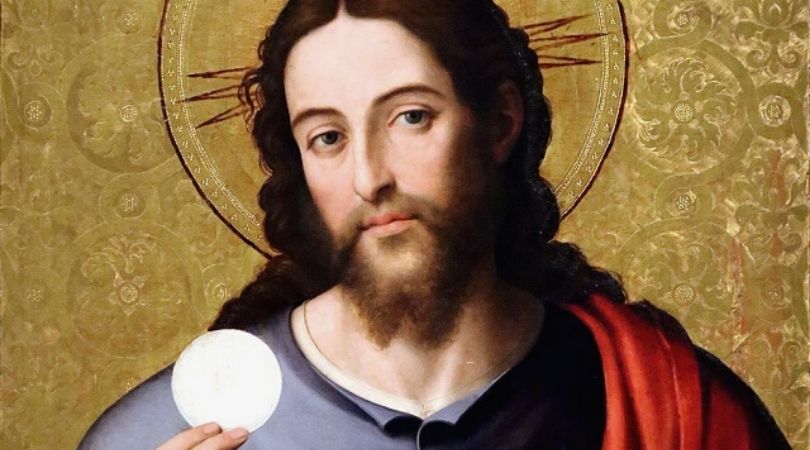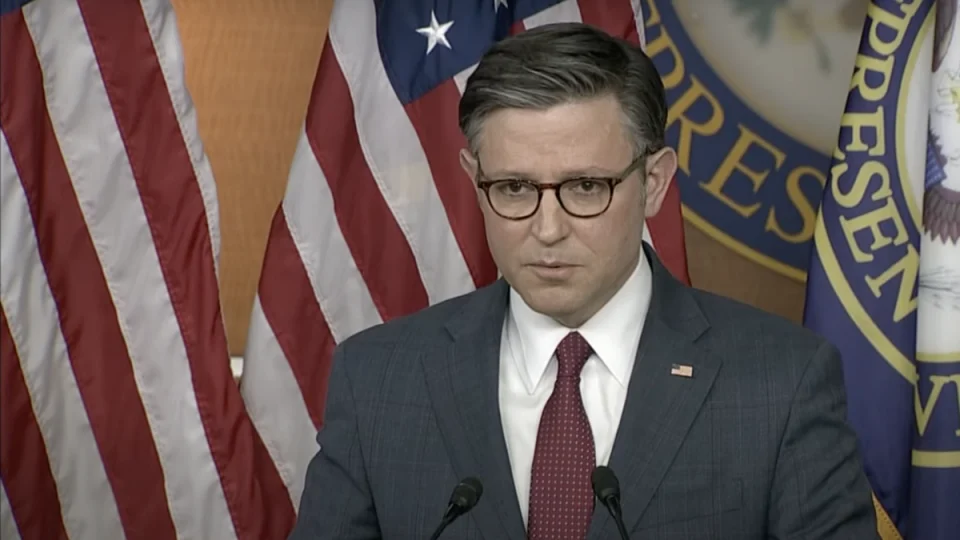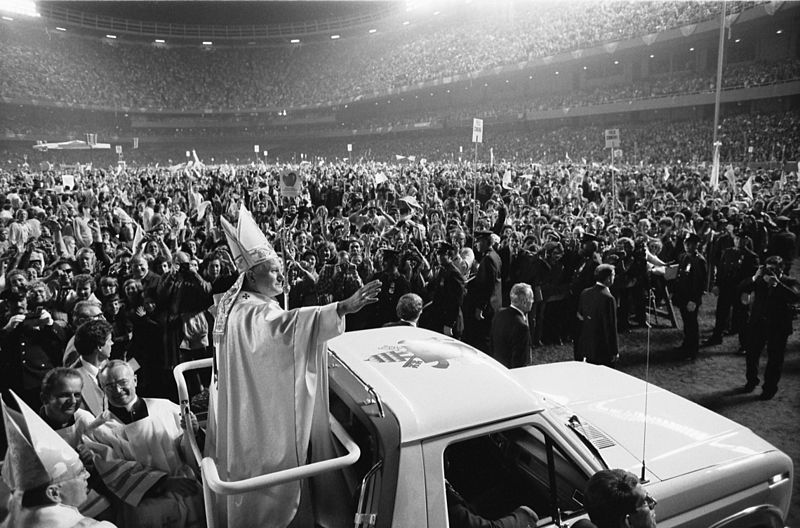Fr. Regis Scanlon: Abuse Crisis Answer: Stricter Seminary Entrance Standards
January 17, 2019Tony Perkins: Abortion Isn’t Health Care, and It’s Time Our Laws Reflected That
January 17, 2019
By Phil Lawler, Catholic Culture, Jan 15, 2019
God bless Bishop Strickland for joining in that plea. I hope and pray that other American bishops will follow suit. But please, bishops, act now. You’re running out of time.
This morning, by chance (or was it by chance?) I found myself reading from the sermons of St. Claude la Colombiere. Speaking about true repentance for sin, St. Claude tells this striking story:
We read, in the History of the Councils of Toledo, that a bishop of Braga, named Potamius—venerable for his age, famous in all of Spain for his virtue and above all for the zeal with which he had spoken out several times against the immodest—having himself fallen, by a strange weakness, in a secret act of fornication, was touched so deeply by it that he never could stop himself from venting his grief. But what occasion did he take—God of heaven!—in order to relieve himself? Gentlemen, this was in the council where he himself presided! This council was composed of fifty bishops, of a great number of abbots, of doctors, and of other ecclesiastics. This was in the presence of an assembly so numerous and so illustrious that this great man, this public protector of chastity, prostrated himself on the ground, confessed his incontinence aloud, everyone trembling at this spectacle and unable to understand what such urgent motive could have led him to endure willingly such a horrible embarrassment.
Now try to imagine a similar scene, played out at a meeting of the US bishops’ conference. Try to imagine a prelate—it doesn’t have to be McCarrick; there are surely other candidates—breaking into the agenda with an anguished confession of grief over his grave sins.
You can’t, can you? And that’s the problem.
It’s easy to envision our bishops apologizing. They’ve done quite a lot of that, actually. It’s easy to imagine them issuing another statement about clerical abuse, or approving another set of policies and procedures. But it’s nearly impossible to imagine a bishop making a public confession of sin—of sin, not errors in judgment. And it’s equally difficult to imagine other bishops sitting silently to such a confession, offering their prayerful support. That sort of thing is definitely not on the agenda when our bishops gather for their annual meetings.
Bear in mind that the US bishops recently finished a week-long spiritual retreat. If ever there was a ripe time for dramatic conversion, that time is now. Yet as I write, to the best of my knowledge only Bishop Strickland has joined Archbishop Vigano in urging McCarrick to repent. Most of our shepherds are content, apparently, to let the canonical process grind away.
And that process should grind away, of course. But McCarrick’s canonical trial is only a part of the story. There’s also a soul at stake, as Archbishop Vigano reminds us. A public confession from McCarrick—or even a public plea for that confession, made by many of his colleagues—would demonstrate that Catholic bishops believe what they profess. The absence of a confession, and the silence of the hierarchy, raises an insidious doubt: Do our bishops really believe that sin is worse than death, that damnation is worse that public humiliation?
Ironically, a dose of public humiliation might be just what the American hierarchy needs to restore its tattered credibility. Heaven knows our bishops have been humiliated, and will inevitably be even further humiliated, by the steady pounding of scandals. But to date all of the humiliation has been imposed upon the bishops, rather than accepted voluntarily. We are still waiting for the first bishop to admit his failings without the prompting of newspaper headlines and criminal investigations. If just one bishop came clean—not offering excuses and explanations, but giving the details of his misbehavior and taking full responsibility—that public act would that a tremendous, cathartic effect. It could well prompt other prelates to take the same cleansing step, and bring a tide of renewal to the hierarchy.
Archbishop Vigano made just this argument in his appeal to McCarrick:
You, paradoxically, have at your disposal an immense offer of great hope for you from the Lord Jesus; you are in a position to do great good for the Church. In fact, you are now in a position to do something that has become more important for the Church than all of the good things you did for her throughout your entire life. A public repentance on your part would bring a significant measure of healing to a gravely wounded and suffering Church. Are you willing to offer her that gift?
Ordinarily the Catholic Church does not expect sinners to make public confessions. But when the sins cause public scandal, some public reparation is necessary. And in this case there is another factor:
We already know!
We know that McCarrick pursued seminarians and other young men. We know that many other bishops were aware of his misconduct and nevertheless allowed him to act as their spokesman. We know that many bishops have lied to their people, protected predators, blamed victims. So how much dignity would a brave prelate lose, if he admitted to what we already know?
Instead, we have the unedifying spectacle of bishops clinging to the shredded rags of their reputations. Cardinal Wuerl, caught out in a public lie (which most people had recognized as a lie in the first place), now makes pathetic excuses. Why doesn’t he admit to his dishonesty? We already know!
For that matter why don’t other American bishops call upon Cardinal Wuerl to drop the pretenses? Why do they allow him to cause this pointless embarrassment for their entire hierarchy? Have they learned nothing at all from the scandal caused by his predecessor—and by their failure to confront that problem?
Our bishops are in trouble, and they know it. They know that the faithful are confused and angry. They know that they have lost the confidence of the public. But even the “good bishops” don’t know how to address the problem. They have not yet come to grips with the systematic corruption within the hierarchy.
When I speak of “systematic” corruption, I do not mean that every bishop is corrupt. I mean that the bishops as a group have shown themselves unwilling or unable to police their own ranks. A prescient article that appeared in the November 2000 issue of Catholic World Report, under the byline of Father Paul Shaughnessy, SJ, offered an admirable explanation of what this sort of corruption entails:
The principal reason why the action necessary to solve the gay problem won’t be taken is that the episcopacy in the United States is corrupt, and the same is true of the majority of religious orders. In calling them “corrupt” I mean that these institutions have lost the capacity to mend themselves on their own initiative and by their own resources, that they are unable to uncover and expel their own miscreants.
It is important to stress that this is a sociological claim, not a moral one. If we examine any trust-invested agency at any given point in its history, whether that agency be a police force, a military unit, or a religious community, we might find that, say, out of every hundred men, five are scoundrels, five are heroes, and the rest are neither one nor the other: ordinarily upright men who live with a mixture of moral timidity and moral courage. When the institution is healthy, the gutsier few set the overall tone, and the less courageous but tractable majority works along with these men to minimize misbehavior; more importantly, the healthy institution is able to identify its own rotten apples and remove them before the institution itself is enfeebled.
However, when an institution becomes corrupt, its guiding spirit mysteriously shifts away from the morally intrepid few, and with that shift the institution becomes more interested in protecting itself against outside critics than in tackling the problem members who subvert its mission. For example, when we say a certain police force is corrupt, we don’t usually mean that every policeman is on the take—perhaps only five out of a hundred actually accept bribes—rather we mean that this police force can no longer diagnose and cure its own problems, and consequently if reform is to take place an outside agency has to be brought in to make the changes.
Right now it seems the most likely path toward reform in the Church is the intervention of an “outside agency”—government authority. But that route could lead to disaster; our political leaders are not friendly to the cause of Catholicism, and a healthy Church always fights against the imposition of political control. If only a “morally intrepid few” bishops, here and in Rome, could call for and make public acts of repentance, we might yet avoid that danger. But time is running out.
_____________________
Phil Lawler has been a Catholic journalist for more than 30 years. He has edited several Catholic magazines and written eight books. Founder of Catholic World News, he is the news director and lead analyst at CatholicCulture.org. See full bio.
https://www.catholicculture.org/commentary/otn.cfm?id=1321





 The statement from Archishop Vigano,
The statement from Archishop Vigano, 

